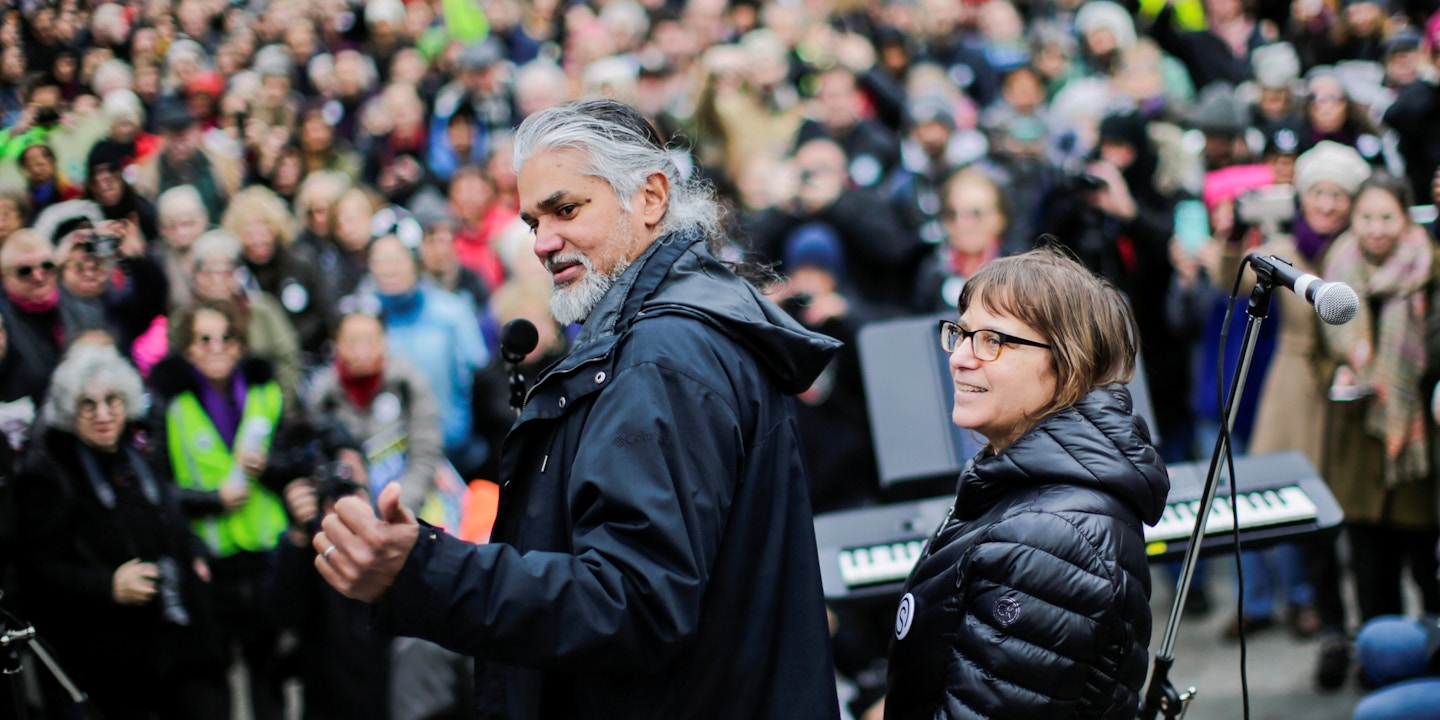by NICK PINTO

Standing beside his wife Amy Gottlieb, activist Ravi Ragbir, left, speaks during a protest against U.S. immigration policies in front of the Jacob Javits Federal Building in New York City on Feb. 10, 2018. PHHOTO/Eduardo Munoz/Reuters
When U.S. Immigration and Customs Enforcement attempted last year to deport Ravi Ragbir, an outspoken critic of the agency, it was motivated by a desire to retaliate against his criticism, according to a ruling by a panel of judges with the 2nd Circuit Court of Appeals released yesterday.
“Ragbir’s public expression of his criticism, and its prominence, played a significant role in the recent attempts to remove him,” the ruling says. “The government’s retaliation was egregious.”
The ruling, written by Judge Christopher Droney, constitutes a direct challenge to broad executive power over immigration issues. In the case, the administration contends that people facing deportation are not entitled to make constitutional claims. The 2nd Circuit’s rebuke of that position now sets up a potential Supreme Court showdown over whether Congress or the executive can prevent the courts from hearing such claims.
“It should outrage every American that our government would attempt to stifle important political dissent and advocacy for civil rights by deporting the government’s most prominent critics.”
Stanton Jones, one of the lawyers representing Ragbir, called yesterday’s ruling an important affirmation that the government cannot silence its critics through exile.
“It should outrage every American that our government would attempt to stifle important political dissent and advocacy for civil rights by deporting the government’s most prominent critics,” Jones said. “That is the type of behavior that we might expect from an autocratic foreign regime, but it’s not behavior that any of us should expect or accept from our government.”
Ragbir’s case is based on his allegations that when ICE attempted to deport him in January 2018, it was singling him out because of his political speech and the unflattering media attention that speech brought to the agency. When Ragbir, the leader of the New Sanctuary Coalition of New York City, attended a mandatory check-in at ICE’s New York Field Office in 2017, his supporters staged a large rally outside the Lower Manhattan office, and prominent local politicians accompanied him inside.
The protests evidently made an impression on ICE officials. A year later, Scott Mechkowski, then the deputy director of ICE’s New York office, told one of Ragbir’s lawyers, Alina Das, that he continued to feel “resentment” about the events surrounding Ragbir’s 2017 check-in, Das said in a sworn declaration.
The Intercept for more
